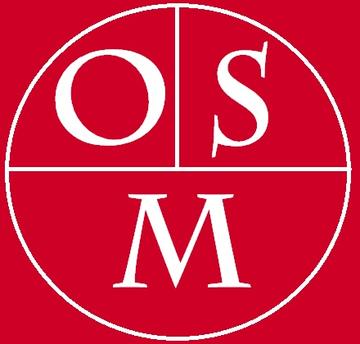Medieval Matters: Booklet and Week 0

Dear all,
Welcome back to Trinity Term! As usual, it’s going to be a splendid term of seminars, events, and reading groups to keep you entertained and informed.
Without further ado, I present this term’s Medieval Booklet. Peruse and enjoy! Please take particular note of this term’s OMS Lecture, given by our own Jim Harris, Mellon Foundation Teaching Curator at the Ashmolean Museum. Jim will be speaking on ‘Museum in the Middle: Medieval Things in a (Still) Medieval University’ and presenting from the Ashmolean’s collections. You don’t want to miss this, so be sure to hop on the OMS YouTube channel on Tuesday 27 April at 5 pm! The direct link is here.
A few important announcements:
The Invisible East Project is hosting three (3!) amazing events this week. Tomorrow, Tuesday 20 April, at 5 pm on Zoom, will be the book launch for Faḍā’il-i Balkh or the Merits of Balkh, an annotated translation of the oldest surviving history of Balkh in Afghanistan. Register here. On Wednesday 21 April at 5 pm, the Marburg Museum of Religions is holding a special exhibition on the scholar Annemarie Schimmel; the flyer with the QR code to register is attached. And on Thursday 22 April at 5 pm, Oxford’s Arezou Azad will be speaking on ‘The Unheard Voices from Eastern Iran and the Eastern Islamicate World’ as part of the British Institute of Persian Studies’ 2021 webinar series. Register here.
The Bodleian Libraries would like to remind you that Bodleian acquisitions for 2020–21 must be delivered by the end of the financial year in July, and they aim to conclude their orders for the year by mid-May. If you have missed any books in the libraries this year, please complete the purchase request form or contact the relevant subject librarian. The librarians also welcome donations of any titles that the Bodleian does not currently hold.
The upcoming Communities and Networks in Late Medieval Europe (c. 1300-1500) Conference seeks your papers. Hosted at St Catharine’s College Cambridge on 9-10 September, the conference aims to build on and contribute to the expanding field of ‘networks’ research by investigating the internal and external dynamics of communities in the last two centuries of the European Middle Ages. Junior researchers (doctoral and postdoctoral) are especially welcome. Topics include but are not limited to: networks and the development of communities; networks in conflict and conflict resolution; oral and written communication networks; literacy and bureaucratization; development of infrastructure; warfare; possibilities and drawbacks of social network analysis as a methodological approach to medieval studies. Send your 300-word abstracts, along with a short author biography, to commsandnetworks21@gmail.com by 7 June.
Speaking of CfPs, the annual Norse in the North Conference has extended its deadline until 26 April. Durham University will host the conference online on Saturday 12 June, on the theme ‘Transformation and Preservation in Old Norse Studies’. This year’s keynote will be Ármann Jakobsson, ‘Till Undeath Do Us Part: Some Norse Non-Transformations’. Learn more here and email your 300-word abstract to norseinthenorthofficial@gmail.com.
As you will see from the booklet, the Oxford Medieval Book Club wants your input! This friendly and informal group is inviting members of the OMS community to guide the group through readings they’ve discovered on the topic of Medieval Legends in weeks 4-7. Possible topics include but are not limited to folk legends, founding myths, legendary places and creatures, the Grail legend, tall tales, false identities, and imposters. Send your suggestions to oxfordmedievalbookclub@gmail.com.
Go forth, check out the medieval booklet, and get your calendars filled! It looks to be a brilliant term. This time last year we were embarking on our first term in lockdown, our first term of digital seminars. This year has been longer and harder than we were told to expect, but the difference between Trinity Term 2020 and Trinity Term 2021 — the number and range of exciting seminars, the quality, ease, and attendance levels of our online events — is something we should be collectively proud of. And now we can, quite genuinely, look forward to being back in lecture theatres and seminar rooms with one another soon.


